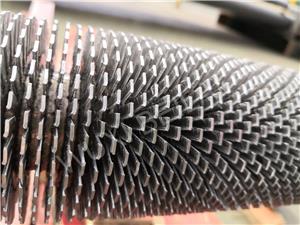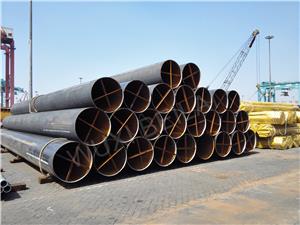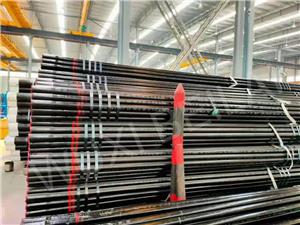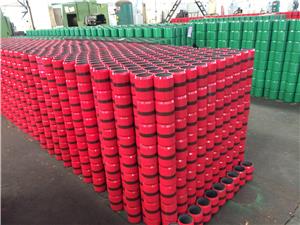Ten Essential Types of Pipes Used in the Oil and Gas Industry
Pipelines are an essential component of the oil and gas industry, forming the backbone for the transportation of fluids. They facilitate the secure conveyance of industry essentials, ranging from crude oil to natural gas, from extraction sites to refineries, and ultimately to consumers. Today, oil and gas pipe manufacturer Bei Lai is here to introduce you to the top ten basic pipes used in the oil and gas industry.
1. Stainless Steel Pipes
Stainless steel pipes are extensively utilized in the oil and gas sector due to their exceptional resistance to corrosion. A variety of stainless steel grades are accessible to cater to diverse application specifications. For instance, the oil and gas pipe manufacturer Bei Lai offers stainless steel tubes in various grades, including A106, A53, A106M, A335M, A333M, and so on, which are appropriate for industrial applications such as water transportation, oil, and gas, among others.
2.Carbon Steel Pipes
Carbon steel pipes are renowned for their exceptional durability and tensile strength, rendering them the perfect selection for the terminal transportation of oil and gas. Ranging from low-carbon steel to high-carbon steel, varying levels of carbon content influence the pipes' flexibility and hardness.
3.Nickel Alloy Pipes
Nickel alloy tubing is also a good choice given the high operating temperatures often found in the oil and gas industry. These tubes are an indispensable and critical material, as they demonstrate exceptional resilience in extreme environments due to their excellent resistance to high temperatures and corrosion. Oil and gas pipe manufacturer Bei Lai supplies copper-nickel tubes such as seamless condenser tubes and heat exchanger products.
4.Duplex Pipes
Duplex Pipes, a category of stainless steel, are exceptionally well-suited for applications necessitating high strength and excellent corrosion resistance, making them ideal for the chemically challenging environments of the oil and gas industry.
5.PVC Pipes
Lightweight, cost effective and easy to install, PVC pipes is commonly used in oil and gas operations. Their high corrosion resistance and strength make them ideal for low pressure situations and are commonly used for salt water treatment, chemical handling and water flooding.
6.HDPE Pipes
The High-Density Polyethylene (HDPE) Pipes provide excellent resistance to rugged terrains, corrosion, and chemicals – perfect for cross-country pipelines transporting natural gas. Their light weight and ductility make them advantageous for seismic-prone areas.
7.Fiberglass Pipes
Fibreglass pipes is widely used in oilfield tubing and oil well casing due to its light weight, high strength and excellent flexibility.
8.Copper Pipes
Copper pipes are widely used in applications that require a secure seal for gases such as propane and natural gas. Their resistance to corrosion and capacity to endure high temperatures render them ideally suited for this purpose.
9.Polyvinylidene Fluoride (PVDF) Pipes
The application of oil and gas with high purity levels renders PVDF Pipes a viable option, primarily due to their resistance to most minerals and aqueous solutions.
10.Galvanized Pipes
Galvanised pipes have a protective coating of zinc that prevents rusting and allows for the efficient transport of natural gas and other fluids. Once the industry standard, galvanised pipe is gradually being replaced by less corrosive materials, although it is still partially used.
The materials and construction of pipelines largely determine the complexity of their application in the oil and gas industry. Feel free to enquire about oil and gas pipe manufacturer Bei Lai .




